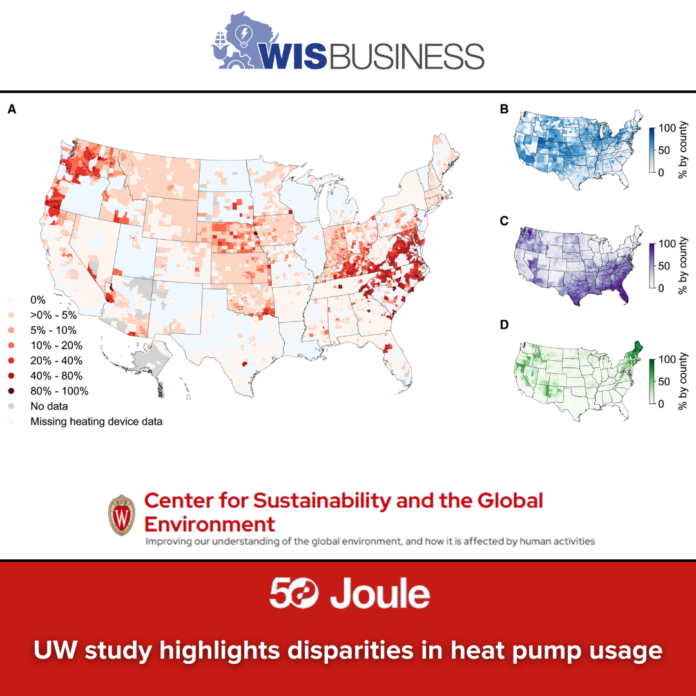A new UW-Madison study finds minority communities and those with more renters are less likely to use heat pumps — an energy-efficient alternative to other home heating and cooling options.
The study, from researchers in the university’s La Follette School of Public Affairs, was published recently in the scientific journal Joule. It was led by Morgan Edwards, an assistant professor of public affairs whose work focuses on human energy use and responses to climate change.
Researchers analyzed property data, socioeconomic indicators and the impact of heat pump use on energy bills in their study. After controlling for other factors, they found sociodemographic variables “strongly correlate” with heat pump use.
For example, a 10% increase in the Black population in a given census tract was linked to a 13% decrease in the odds that residents use a heat pump. Communities with higher proportions of Asian, Pacific Islander, multiracial and other non-white racial and ethnic residents also had lower heat pump use, according to the study.
Similarly, researchers also found a 10% increase in renter-occupied housing units in a census tract came with a 4% decline in the odds of heat pump use.
“Household electrification is an emerging energy justice issue in the US,” Edwards said in a statement on the study. “The story we see with heat pumps is the same one we see time and again with clean energy technologies: disadvantaged communities are at risk of being left behind.”
Jaime Garibay-Rodriguez, a postdoctoral associate who led development on the study model, notes disparities in heat pump adoption “have different implications if they are in areas where heat pumps raise or lower energy bills.” He noted race and ethnicity were found to have the “strongest negative associations” with heat pump use in areas where these installations would reduce energy bills.
Heat pumps rely on electricity to warm or cool spaces, similar to how a refrigerator works, according to a U.S. Department of Energy website. The agency says the technology is more energy-efficient than furnaces or air conditioners, and the university’s announcement notes the Inflation Reduction Act expanded incentives for heat pumps. But it adds the “extent to which the policy will impact underserved communities” isn’t known.
Edwards argues those incentives “were a great start but clearly there is much more policy work to be done to keep electrification efforts from exacerbating the energy justice challenges facing this country.”






